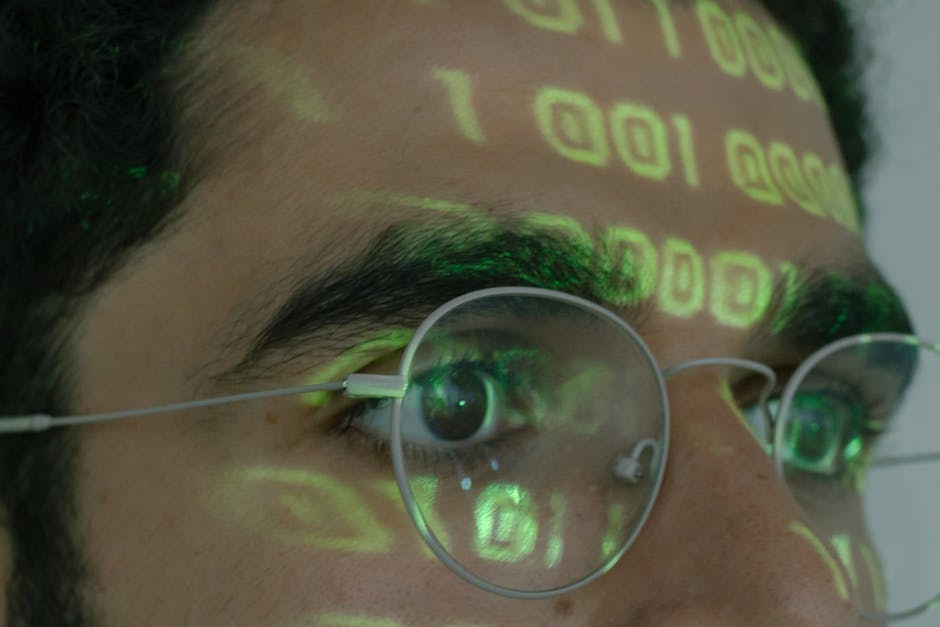In the digital age, our lives are illuminated by the glow of screens, from smartphones to computers, often blurring the line between necessity and excess. The tether to our devices, while a conduit for connectivity and information, also raises concerns about the toll on our health. As we navigate through the pixels and notifications, it’s crucial to pause and consider: at what cost does this constant exposure come?
Key Takeaways
- Excessive screen time can lead to a range of health issues, including eye strain, sleep disruption, and musculoskeletal problems.
- Long hours in front of screens are associated with an increased risk of lifestyle diseases such as obesity and diabetes.
- Cognitive functions and mental health can be adversely affected by too much screen time, impacting attention spans and emotional well-being.
- Children’s development, both physically and socially, can be hindered by excessive use of digital devices.
- Strategies to manage screen time effectively can mitigate health risks and improve overall well-being.
Introduction to Excessive Screen Time and Health
Definition of excessive screen time
Excessive screen time is often characterized by spending an inordinate amount of time engaged with digital displays, including televisions, computers, tablets, and smartphones.
Overview of potential health impacts
The potential health impacts are vast and varied, ranging from physical ailments like eye strain to more insidious effects on mental health and cognitive abilities.

Physical Health Consequences
Eye Strain and Vision Problems
Symptoms of digital eye strain
Digital eye strain, also known as computer vision syndrome, manifests through symptoms such as dry eyes, headaches, blurred vision, and neck pain.
Long-term vision issues
Prolonged exposure to screens can lead to more serious long-term vision issues, including the risk of myopia or nearsightedness.
Musculoskeletal Issues
Posture-related problems
Slouching and poor posture while using devices can lead to chronic back and neck pain, a condition often referred to as “tech neck.”
Repetitive strain injuries
Repetitive motions, such as typing and swiping, can cause injuries like carpal tunnel syndrome, affecting the hands and wrists.

Sleep Disruption and Its Effects
Impact on Sleep Patterns
Blue light and melatonin suppression
The blue light emitted by screens can suppress the production of melatonin, the hormone responsible for regulating sleep, leading to difficulties in falling asleep.
Difficulty falling and staying asleep
Excessive screen time, especially before bed, can make it harder to fall and stay asleep, resulting in less restorative sleep.
Consequences of Sleep Deprivation
Effects on cognitive function
Sleep deprivation can impair cognitive functions such as memory, attention, and decision-making.
Overall health deterioration
Chronic lack of sleep can contribute to a host of health problems, including weakened immune function and increased risk of chronic diseases.

Lifestyle Diseases and Screen Time
Obesity and Sedentary Behavior
Relationship between screen time and physical inactivity
Extended periods of screen time are often associated with a sedentary lifestyle, which is a significant risk factor for obesity.
Snacking habits while using screens
The habit of snacking while engaged with screens can contribute to weight gain and poor nutrition.
Exacerbation of Chronic Conditions
Diabetes risk factors
A sedentary lifestyle, influenced by excessive screen time, can increase the risk of type 2 diabetes.
Cardiovascular health concerns
Sedentary behavior linked to screen time can also lead to cardiovascular health issues, including hypertension and heart disease.

Cognitive and Mental Health Implications
Decline in Cognitive Abilities
Attention and concentration deficits
Excessive screen time can lead to shorter attention spans and difficulties in concentrating on tasks.
Multitasking inefficiencies
The myth of multitasking efficiency is debunked as studies show that performance actually decreases when juggling multiple digital tasks.
Emotional and Social Skills
Impairment of social skills
Overreliance on digital communication can impair face-to-face social skills and emotional intelligence.
Weakened emotional judgment
Constant exposure to the curated realities of social media can skew emotional judgment and expectations.
Impact on Self-Esteem
Social media and self-comparison
The culture of comparison fostered by social media can negatively impact self-esteem and body image.
Validation culture effects
The pursuit of likes and validation on social media platforms can lead to a dependency that affects mental health.

Effects on Children’s Development
Learning and Physical Development
Limitations on physical activity
Excessive screen time can limit children’s physical activity, essential for healthy growth and development.
Delay in hands-on exploration and learning
A preference for digital interaction over hands-on exploration can delay learning and cognitive development in children.
Social and Emotional Growth
Reduced face-to-face interactions
Children who spend too much time with screens may miss out on crucial face-to-face interactions that are vital for social development.
Development of interpersonal communication skills
The lack of in-person communication can hinder the development of essential interpersonal skills in children.
The Phenomenon of Screen Addiction
Understanding Screen Addiction
Characteristics of compulsive use
Screen addiction is characterized by compulsive use of digital devices, often at the expense of other activities and responsibilities.
Difficulty in disconnecting
Individuals with screen addiction may find it challenging to disconnect from their devices, even when it negatively impacts their lives.
Strategies for Managing Screen Use
Setting limits on screen time
Implementing structured limits on screen time can help manage and reduce the risk of addiction.
Finding alternative activities
Encouraging engagement in alternative activities, such as physical exercise or hobbies, can offset the allure of screens.

Information Overload and Decision-Making
Processing Information
Challenges with excessive stimuli
The barrage of information from screens can overwhelm our ability to process and retain information effectively.
Impact on Decision-Making
Difficulties in making informed choices
Information overload can impair our decision-making capabilities, leading to less informed and more impulsive choices.
Seeking Help and Support
Recognizing the Need for Intervention
Acknowledging the negative impact of excessive screen time is the first step toward seeking help and making changes.
Consulting Professionals
Guidance on managing screen time
Professionals can offer guidance on managing screen time to improve health outcomes.
Support for underlying health issues
Seeking support for underlying health issues related to screen time can be crucial for long-term well-being.
In conclusion, while screens are an integral part of modern life, it’s essential to recognize the potential health implications of their overuse. By understanding the risks and implementing strategies to manage screen time, we can protect our health and enhance our quality of life. For those seeking to moderate their screen time, resources are available to help navigate this digital landscape (screen time moderation). And for parents concerned about their children’s screen habits, understanding the psychological effects of what they watch, such as the impact of fireplace videos on mood and well-being, can be a step toward mindful media consumption. Remember, the power to change our screen habits is in our hands, and with the right approach, we can reclaim our health and well-being in the digital age.
Unveiling the Screen Time Enigma: Your Health FAQ Guide
What are the potential impacts of excessive screen time on physical health?
Excessive screen time can lead to a variety of physical health issues. It’s often associated with eye strain, headaches, and blurred vision, a condition sometimes referred to as computer vision syndrome. Prolonged periods of inactivity while using screens can also contribute to obesity, musculoskeletal problems, and an increased risk of cardiovascular diseases due to sedentary behavior. Furthermore, poor posture while using devices can cause neck and back pain, known as ‘tech neck’.
Can screen time affect mental health?
Yes, high amounts of screen time have been linked to mental health concerns. It can affect sleep quality, leading to insomnia and sleep disturbances, which in turn can contribute to stress, anxiety, and depression. There’s also a correlation between screen time and reduced attention span, as well as potential exacerbation of existing mental health issues.
How does screen time impact children’s development?
In children, excessive screen time can hinder physical, cognitive, and social development. It may affect language development, reading skills, and attention span. Overuse of screens can also limit the time children spend on physical activities, which is crucial for their growth and motor skills development. Additionally, it can impact their ability to understand social cues and engage in face-to-face interactions.
Is there a link between screen time and obesity?
Yes, there is a significant link between screen time and obesity. Sedentary activities like watching TV or playing video games for extended periods can reduce the time spent on physical exercise, leading to weight gain. Moreover, screen time often goes hand in hand with snacking on high-calorie foods, which contributes to obesity.
What is the recommended amount of screen time for adults and children?
For adults, there’s no specific recommended screen time limit, but it’s important to balance screen use with physical activity. For children, the American Academy of Pediatrics suggests no screen time for children younger than 18 months, except for video chatting. For children aged 2 to 5 years, they recommend limiting screen use to one hour per day of high-quality programs. For children 6 years and older, consistent limits on the type, duration, and quality of media are advised.
How can screen time affect sleep?
Excessive screen time, especially before bedtime, can disrupt sleep patterns. The blue light emitted by screens can suppress the production of melatonin, the hormone responsible for regulating sleep-wake cycles. This can make it harder to fall asleep and can lead to a decrease in the overall quality of sleep. It’s recommended to avoid screens at least an hour before bedtime to help maintain a healthy sleep schedule.
Are there any benefits to screen time?
In moderation, screen time can have benefits. It can be a source of education, provide access to information, and facilitate social connections, especially for those who are geographically isolated. Screen time can also be a tool for creativity and relaxation. The key is to use screens mindfully and balance them with other activities.
What strategies can help manage screen time effectively?
To manage screen time effectively, set specific times for using devices and stick to them. Use apps or tools that track and limit your screen time. Make sure to take regular breaks, at least every 30 minutes, to rest your eyes and move your body. Engage in alternative activities that don’t involve screens, like reading, exercising, or spending time outdoors. For families, creating a media use plan can be helpful in setting boundaries and ensuring quality screen time.
Can screen time cause permanent eye damage?
While excessive screen time can cause discomfort and symptoms of computer vision syndrome, it typically does not cause permanent eye damage. However, it’s important to practice good screen hygiene by adjusting screen brightness, maintaining an appropriate distance from the screen, and using anti-glare screens or glasses to minimize eye strain.
How does screen time affect social relationships?
Excessive screen time can negatively affect social relationships by reducing the time and attention we give to face-to-face interactions. It can lead to a sense of disconnection and may hinder the development of social skills, especially in children. It’s important to prioritize in-person connections and ensure that screen use does not replace valuable social experiences.



